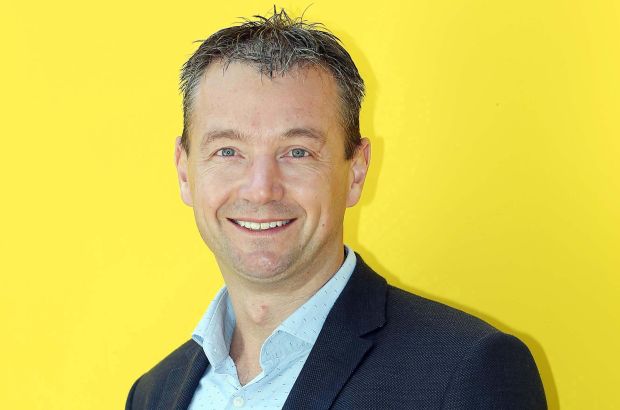
Lego Builds for the Future and Boosts Korean Creativity

If you’ve ever been unsure about your position on the debate of long-term brand building versus short term tactical bumps and ROI-bound digital campaigns, try sitting in on a Lego presentation.
The biggest smiles at Ad Stars 2019 were to be seen when Lego’s Korea general manager, Michael Ebbesen, took to the stage. Never mind the audience, even the volunteers were unrestrained in their glee. Even before Michael had started his talk, he’d been accosted by at least four people keen to share their own childhood memories with the brand. Imagine seeing people’s faces light up every time you tell them where you work.
But despite Lego’s legacy – the company has been making toys ever since the financial crash in 1932 drove a Danish furniture company to seek out a new business model, and the iconic brick celebrated its 60th birthday last year – the company is not immune from the pressures of changing tastes and digital disruption.
“It’s not like it’s all jolly, happy days – it’s not like we go to work and play every day! I wish it was!” jokes Michael.
In Korea specifically the big marketing challenge is to persuade parents about the importance of play. Creativity and the educational merits of free play is a cornerstone of Lego’s pitch to parents, but according to the company’s research, Korea’s culture of hardcore studying allows little time for to develop imagination and creative skills.
“In Korea, we believe kids play too little and we believe they could benefit from more play… this is where we see the Lego group closing the gap,” says Michael. “Kids and adults alike are so busy they don’t have time to reflect on their life.”
Fortunately, when it comes to adult fans, the Lego team in Korea benefit from a vast fanbase. “Korea’s actually the place where we have more fans relative to the population,” enthuses Michael.
And that’s good news for the regional team – one of Lego’s core strategies for thriving in the future is to specifically target the ‘kidult’ market. With shrinking birth rates across the developed world, Lego can’t count on its traditional demographic for growth. Having cultivated that strong brand love among fans over decades, Lego has a willing and enthusiastic market of grown up hobbyists. Platforms like Lego Ideas, whereby fans can submit concepts for new sets and stand to earn 1% of net sales if their idea is picked up, are proving to be popular. Thus far Lego Ideas has garnered 35,156 submissions.
Another challenge that Lego faces is how to stay relevant for digitally-native children, whilst staying true to the essence of who they are as a brand. It’s a tricky balance to strike – it’s easy to get so caught up in innovation and novelty that you lose sight of your overall goal. Lego learned that lesson the hard way, back in 2003 and 2004 when the brand was $800m in debt and very nearly went bankrupt. The company identified the root cause as being an attempt to stray too far from its core business, launching toy lines that were unidentifiable as ‘Lego’ products. This ‘non-brick innovation’ was a flop.
That’s why now, while the company recognises the need to evolve for children who have grown up swiping their parents’ smartphones, they need to do so in a way that makes sense for the brand. Michael cites the Lego Life platform, a walled social media platform for children, as one such innovation. In 2017 they also launched a range called ‘Boost’ that combines traditional Lego building with coding, allowing children to experiment with creating and programming their own little robots and inventions. It’s a product that stays close to Lego’s educational remit. The latest innovation is the Hidden Side augmented reality app, which lets children bring their physical creations to life by adding a layer of animation.
One area where Michael says Lego hasn’t striven too hard is data. Like any big business, data is a fact of life but when working with a vulnerable group like children, the preferred approach is to err on the side of caution. “How can we harness and leverage data in a compliant and respectful way?” says Michael, something that the company takes very seriously. However he admits, “I wouldn’t say we are world class”.
One area where Lego is world class is their consistent application of brand both externally and internally. Lego knows what it is. Back in the early noughties when it flirted with bankruptcy, one of the strategies that it used to heave itself back on its feet was to identify its ‘brand promises’ and the values that would determine the decisions it made in the future. These promises are so core that they even determine promotion within the company – candidates are assessed on their ability to embody and uphold the promises and values that click Lego together. These promises are: Play Promise (joy of building. Pride of creation); Partner Promise (mutual value creation); Planet Promise (Positive impact); People Promise (Succeed together).
Those values have also seen Lego own up to and confront its more harmful side. In recent years, Lego has come under fire for its use of plastics created from crude oil – in 2014 Greenpeace parodied the Lego Movie theme tune Everything Is Awesome with its own video ‘Everything is NOT Awesome’. Now Lego is committed to being entirely reliant on plant-based plastics by 2030 - it already produces 200 elements from sustainable materials. In 2017, Lego reached its target of using 100% renewable energy ahead of schedule.
While there are undoubtedly challenges ahead, Lego is readying itself for coming challenges. Somethings, however, remain unsolvable as one astute Ad Stars audience member observes. “Is there any way Lego can make a brick that doesn’t hurt when you stand on it in bare feet?”













